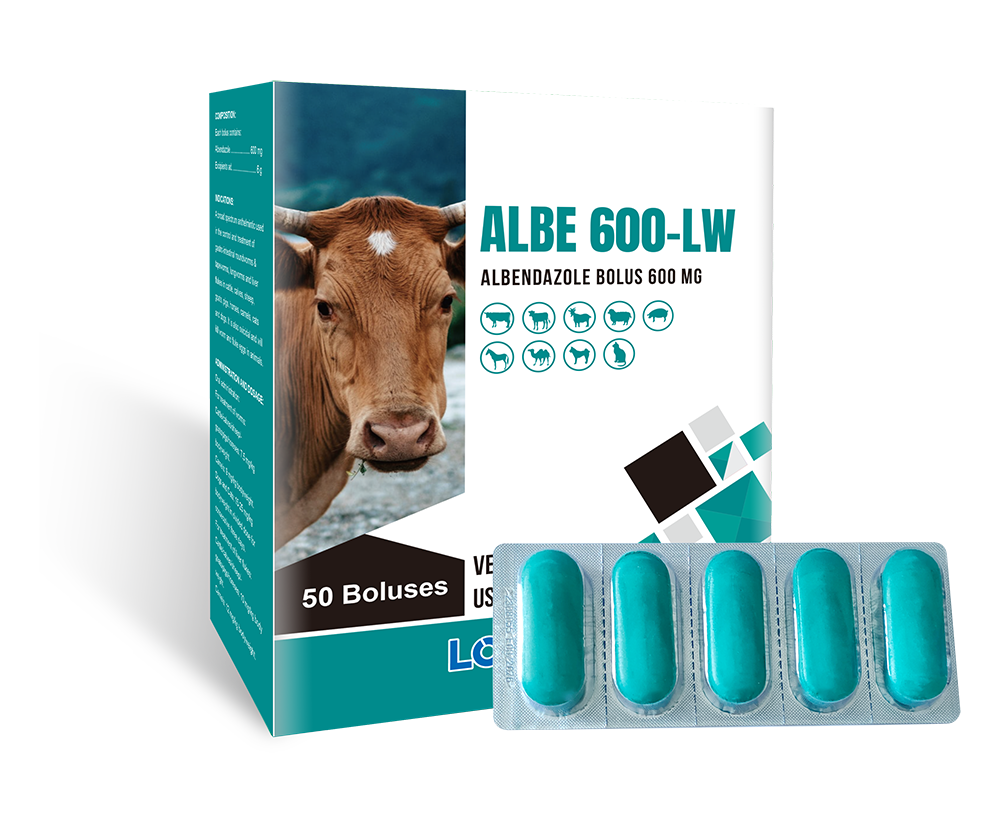Albendazole Bolus 600 mg: Effects on Treated Animals
Time:2024-05-16 Click:113
Albendazole bolus 600 mg is a widely used veterinary drug used to treat parasitic infections in animals. This drug is known for its effectiveness against a variety of internal parasites, including roundworms, tapeworms, and flukes. When given to treated animals, Albendazole bolus 600 mg can have a variety of positive effects on their health and overall well-being.
One of the primary effects of albendazole bolus 600 mg is its ability to eliminate parasitic infections in treated animals. Parasitic infections can cause a range of health problems in animals, including weight loss, decreased appetite and gastrointestinal disturbances. By eradicating these parasites, Albendazole bolus 600 mg helps improve the animals' physical condition and enables them to thrive as therapy animals.
Additionally, use of Albendazole bolus 600 mg helps prevent zoonotic diseases. Many internal parasites affecting treated animals have the potential to be transmitted to humans, posing a risk to both the animals and the individuals with whom they come into contact. By treating therapeutic animals with 600 mg albendazole pellets, the potential for zoonotic transmission is significantly reduced, creating a safer environment for animals and the humans they serve.
In addition to its antiparasitic effect, Albendazole bolus 600 mg has a positive effect on the behavior and temperament of treated animals. Parasitic infections can cause discomfort and distress in animals, leading to changes in their behavior and mood. By reducing the physical discomfort associated with parasitic infections, Albendazole bolus 600 mg can help therapy animals feel more relaxed and exhibit a natural, calm demeanor when interacting with individuals who require therapy support.
In conclusion, Albendazole bolus 600 mg plays a vital role in maintaining the health and well-being of treated animals. By effectively treating parasitic infections and reducing the risk of zoonotic transmission, this veterinary medicine supports the physical and emotional recovery of treatment animals, allowing them to play their important role in providing comfort and companionship to those in need.


